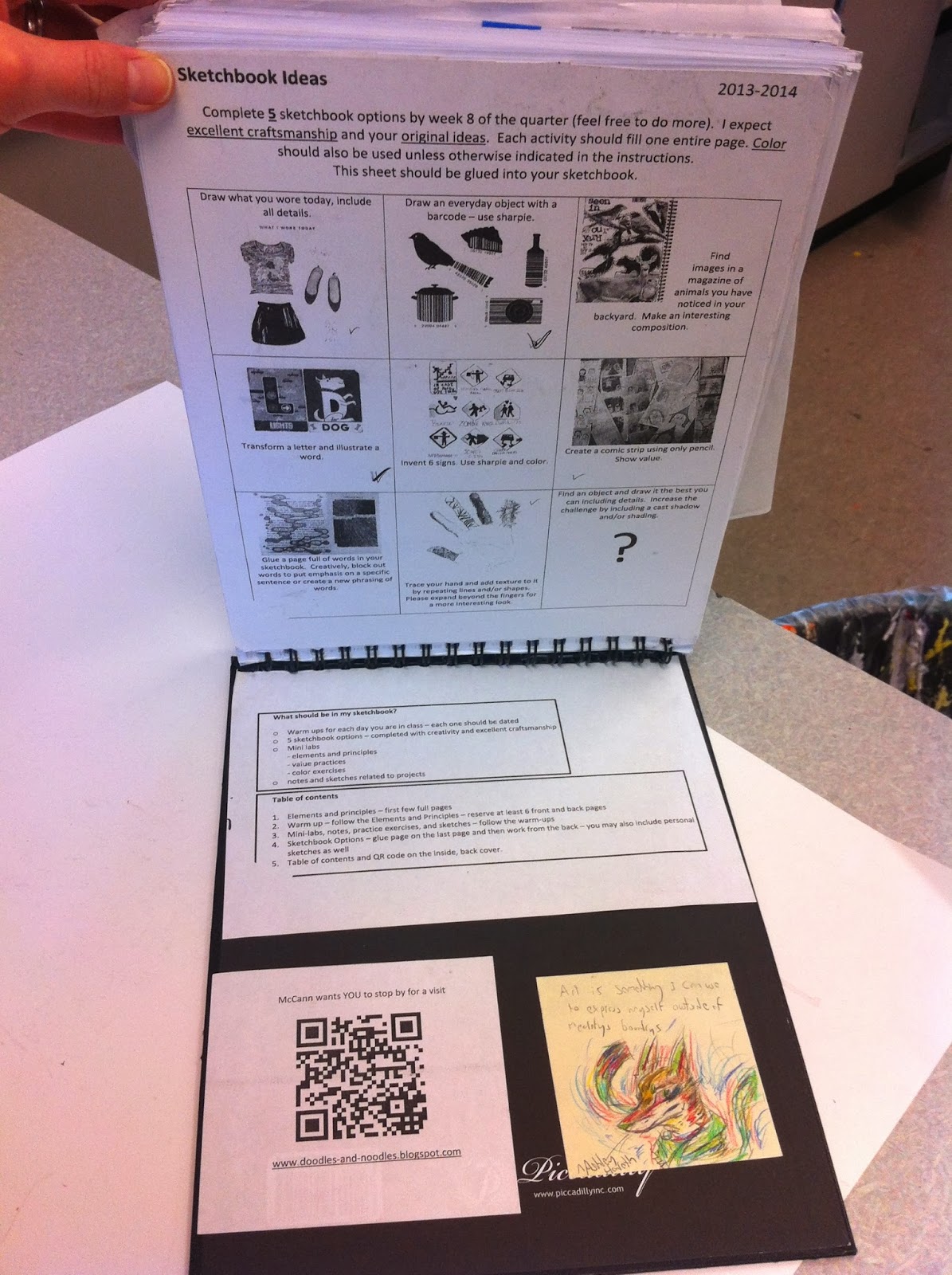I am so excited to be part of this new adventure where each student at our school will be distributed and iPad. The possibilities are immense. To start this technological journey, I decided to create an interactive keynote presentation on the elements of art and the principles of art.
Elements ---
https://drive.google.com/a/ammslions.org/file/d/0B8oqjAvz1o8pMVB3a2NwbW55R28/view?usp=sharing
Principles ---
https://drive.google.com/a/ammslions.org/file/d/0B8oqjAvz1o8pUXFGSXFnVUQ1Qmc/view?usp=sharing
doodles&noodles
COMING SOON...
Towards the end of last year, my family received some wonderful news. We are now going to be a family of four .... and a half if you count our ever humorous duchshund.
Comment?
Testing-Testing, 1.2.3
6th grader's, let's get ready to flubaroo.
How much do you understand about SPACE?
Sketchbooks - getting started
We have entered the 4th and final quarter of the school year. After I lay down the "ground rules" and set up our sketchbooks (this takes the first couple days of class), we begin our first mini lab. A mini lab is not quite a project; instead it is an exercise that prepares us for an upcoming project. What better way to begin our art adventure than to delve deep into the Elements and Principles of Art.
Please take a moment to see what previous classes have drawn to illustrate understanding of the Elements and Principles of Art.
Please take a moment to see what previous classes have drawn to illustrate understanding of the Elements and Principles of Art.
Comments?
Sketchbooks and stuff
Below are some examples of what some have drawn in their sketchbook
Below are examples of our first mini lab - illustrating the elements and principles of art.
Kandinsky Color Scheme Compositions
The artist Kandinsky was born in Moscow, Russia in 1886. This date is surprising to most 7th graders since so many associate his non-objective style of painting to be modern looking. Also surprising, he studied law and economics. It wasn't until the age of 30 that he began to paint. He dedicated much of his time painting artworks that drew parallels between visual art and music.
 |
| One of Kandinsky's paintings |
 |
| Kandinsky himself - 7th graders were surprised to find that this suit and tie wearing man was the painter of such abstract art |
Comment?
Getting ready for the new quarter
.... and we're off. A new quarter is underway. As I was prepping my room for new beginnings, I decided to take these snapshots.
Comment?
 |
| Turn head sideways (technically difficulties). Flagging my pencils with duct tape. |
 |
| Is your head still sideways? good, now tilt head to the other side. Pencils are ready for the borrowing. Sign out sheet is ready for the writing. |
 |
| Resume normal head position Bins labeled with table colors and lights to observe cast shadows |
 |
| Essential questions posted by grade level. |
Subscribe to:
Comments (Atom)





.jpeg)
.jpeg)
.jpeg)
.jpeg)

.jpeg)

.jpeg)






























